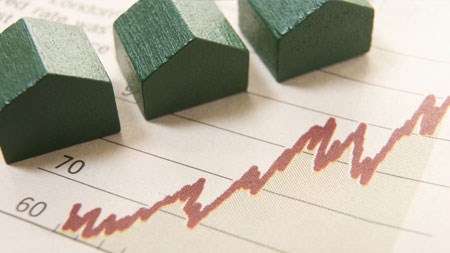Over the past few years, residential property prices have surged to record
highs in many countries around the globe, albeit not in Japan and Germany. Real
price growth of more than 50% in total has been recorded since the mid-1990s in
countries such as Australia, the UK and the US.
Two important factors are believed to have contributed to the housing boom in
these countries: historically low interest rates as a result of low inflation
and the strong performance of property because of the underperformance of other
asset classes, such as equities, at certain stages.
As a result, new home-buyers in the abovementioned countries have increasingly
committed themselves to larger mortgage loans as property prices have soared,
while existing home-owners have increased their loans to turn the massive
capital appreciation on their properties into cash for consumption purposes.
In view of these developments, the global housing boom of the past number of
years is, in some circles, regarded as the biggest financial bubble in history.
Taking into account the extent of house price growth across the world over this
period, as well as the number of countries involved, this boom is arguably
unrivalled. In some countries, property market indicators such as the ratio of
house prices and mortgage debt to income levels have reached record highs.
Against the backdrop of these developments, how does South Africa compare internationally?
Between 2000 and 2005, the South African residential property market has
experienced strong average price growth of about 20% per annum in nominal terms
and almost 14% per annum in real terms. During this period the market was driven
by a wide range of factors, including the lowest inflation since the 1960s and
the lowest interest rates in more than 20 years, causing real house prices to
increase to all-time highs in 2005. This performance came after many years of
mediocre growth from the mid-1980s up to the late 1990s because of political
uncertainty and poor economic growth. Property prices have probably been
catching up with other asset prices since then.
'the ratio of house prices to the level of remuneration in South Africa has increased significantly since 2000'
As a result, the ratio of house prices to the level of
remuneration in South Africa has increased significantly since 2000, but was in 2005 still below the all-time high reached in 1984. An increase in this
indicator implies that house prices are increasing at a faster rate than
remuneration.
In Australia, the UK and the US, the strong performance of house prices during
the past number of years pushed the house price-to-income ratio to record
levels. However, with house price growth significantly lower in Australia and
the UK over the past two years, mainly as a result of earlier interest rate
increases, the house price-to-income ratios stabilised during the past year in
these two countries, but are still high according to historical standards.
In view of rising property prices, low interest rates and equity withdrawals
from mortgage accounts by households for consumption other than just housing,
the ratio of mortgage debt to household disposable income increased to record
levels in the UK and the US, as well as in South Africa.
'The cooling of the South African residential property market during 2005 and the early stages of 2006 can probably be ascribed to housing becoming generally less affordable'
The cooling of the South African residential property
market during 2005 and the early stages of 2006 can probably be ascribed to
housing becoming generally less affordable, taking into account the
increase in the ratio of house prices to remuneration between 2000 and 2005.
Furthermore, the current phase of slowing down in the local property market is
occurring without any interference (such as higher interest rates) on the part
of the monetary authorities in an attempt to cool off and "stabilise" the
market, unlike what has happened in Australia and the UK. These trends and
developments in the local property market are not an indication of a bubble
bursting, but are regarded as a quite normal manifestation of the forces of
demand and supply at work in a free market environment.

